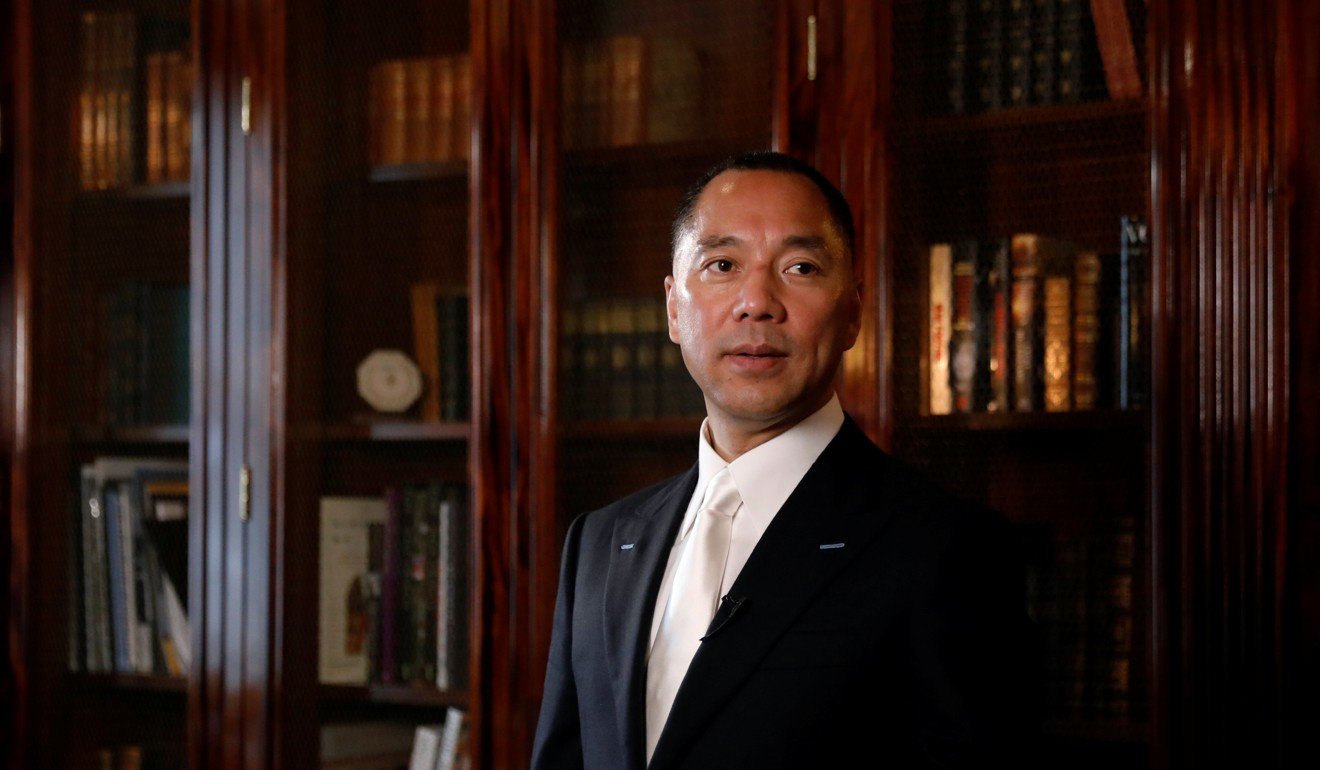
Hong Kong police investigating fugitive Chinese tycoon Guo Wengui over alleged HK$32 billion money laundering conspiracy, court papers reveal
Details of inquiry contained in judicial challenge by company owned by tycoon’s daughter, which is seeking to unfreeze bank accounts under investigation in city
Details of the investigation were made known in a judicial challenge by a company owned by Guo Mei, the property tycoon’s daughter, filed at the High Court on Tuesday, seeking to unfreeze bank accounts under investigation in the city.
This is the first time Guo has been revealed to be under investigation in Hong Kong, where his family members hold interests in various locally registered companies.
According to the writ filed in court, four bank accounts belonging to Anton Development Limited, solely owned and directed by Guo Mei, have been frozen since July 12, 2017, by DBS bank at the request of police.
China accuses fugitive tycoon of commissioning forged documents
The tycoon was accused along with his daughter, his son Guo Qiang, an employee named Qu Guojiao and a man identified as Han Chunguang of involvement in a conspiracy in which they used their personal bank accounts – and those of Anton and Hong Kong International Funds Investments Limited, also owned by Guo Mei – to launder a total of HK$32.9 billion, believed to be proceeds of an indictable offence.
Qu, a manager of the two companies, was arrested on August 3 last year, and is now out on bail.
The frozen accounts contained at least HK$1.57 billion (US$200 million), according to the writ.
Anton said that since the day the funds were frozen, it had repeatedly approached the police through its lawyers offering to help with the investigation.

In particular, the writ said, the firm had explained to the authorities that some HK$744 million of the frozen HK$1.57 billion was a result of investment returns from an Abu Dhabi sovereign fund.
Former business partner appeals to US to repatriate Guo Wengui
But the police showed no intention of releasing all or part of the amount, in their last contact on June 8, the writ said.
The move, Anton said, “interferes with the use or disposal of the property of an individual, which imposes criminal liability without prescribing any time limit for the expiry of such decision and, more importantly, any rights of the affected person … to apply to the court to vary or dismiss the decision”.
It was referring to the refusal by police to place Anton’s application before the court, an option the firm was seeking to gain access to the funds. Instead, the police opted to use their legal power to compel the bank directly to follow their request.
Voice of America fires three staff over Guo Wengui interview
Anton contended that the police were being “utterly unreasonable” and “unfair” since freezing the accounts without giving a time frame for their release would have an adverse effect on the company.
“All along, Anton has had no idea on what basis did the police continue with the freezing of the accounts, month after month,” the firm complained.
Anton is now asking the court to declare that the freezing of its funds was illegal, and to decide whether they should remain frozen.

